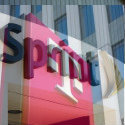T-Mobile Quietly Sweetens Sprint Merger With Philanthropic Pledge
T-Mobile wooed regulators to approve the Sprint merger by vowing to continue to support Sprint's philanthropic 1Million Project.

T-Mobile said it will support Sprint's 1Million Project if the two companies are allowed to merge. The pledge, contained in one of T-Mobile's lengthy filings with the Public Service Commission for the state of New York, represents another lever that T-Mobile is pulling in its efforts to convince regulators and others that its proposed transaction with Sprint is in the public interest.
"[The combined T-Mobile/Sprint's] commitment to bridging the digital divide is further illustrated by its pledge to continue supporting Sprint's signature corporate philanthropy -- the 1Million Project," T-Mobile wrote in a January filing with the state agency, using the name "New T-Mobile" to refer to the company that will be created via the combination of the nation's third- and fourth-largest wireless network operators. "That initiative is addressing the homework gap for high school students in New York and across the nation that do not have access to the Internet in their homes. It has awarded devices and Internet connectivity to 32,415 students in 127 high schools in New York in two years, garnering high praise from New York school systems that it has helped."
The promise appears to be a new one for T-Mobile. The operator made no mention of the 1Million Project in its initial public interest statement on the transaction in June, nor has it mentioned the project in any of its subsequent filings regarding the merger with the FCC. T-Mobile representatives didn't immediately respond to questions on the topic from Light Reading.
The 1Million Project springs from the Sprint Foundation, the philanthropic arm of Sprint that was founded in 1989, with backing from Sprint's current chairman, Marcelo Claure. The five-year program aims to connect 1 million high schoolers who lack Internet access at home, and Sprint in 2017 pledged to donate roughly $2.16 billion in wireless service, technical support and staff to oversee the 1Million Project for five years.
Each student participating in the 1Million Project gets either a free smartphone, tablet or hotspot device and 3GB of high-speed LTE data per month for up to four years while they are in a participating high school. Unlimited data is available at 2G speeds if usage exceeds 3GB in a month. Those who receive a smartphone can use it as a hotspot.
Sprint CEO Michel Combes recently tweeted that the program has so far connected 200,000 high school students.
You're invited to attend Light Reading’s Big 5G Event! Formerly the Big Communications Event and 5G North America, Big 5G is where telecom's brightest minds deliver the critical insight needed to piece together the 5G puzzle. We'll see you May 6-8 in Denver -- communications service providers get in free!
T-Mobile and Sprint announced their plans to merge in April of 2018, and since then they've been working to obtain regulatory approval from the likes of the FCC and Department of Justice, as well as from state public utility commissions. In October, T-Mobile's John Legere said the company has received approvals for more than half of the state public utility commissions that are reviewing the merger -- but California and New York remain two notable holdouts.
Although Sprint's CEO on January 31 confirmed the company continues to expect the company's merger with T-Mobile to close in the first half of this year, despite the government shutdown that delayed the FCC and DoJ approval process, obstacles to the deal continue to pop up.
For example, Legere and Claure are scheduled to testify at a joint hearing on the merger before the House Energy and Commerce Committee and the House Judiciary Committee on February 13. (See T-Mobile/Sprint Throw More Grease on Merger Wheels With New Call Center Promises.)
Indeed, in what appeared to be an announcement geared toward greasing the wheels of the merger, the companies said that a merged Sprint and T-Mobile would build five new call centers, each creating an average of 1,000 new jobs.
— Mike Dano, Editorial Director, 5G & Mobile Strategies, Light Reading | @mikeddano
About the Author(s)
You May Also Like












